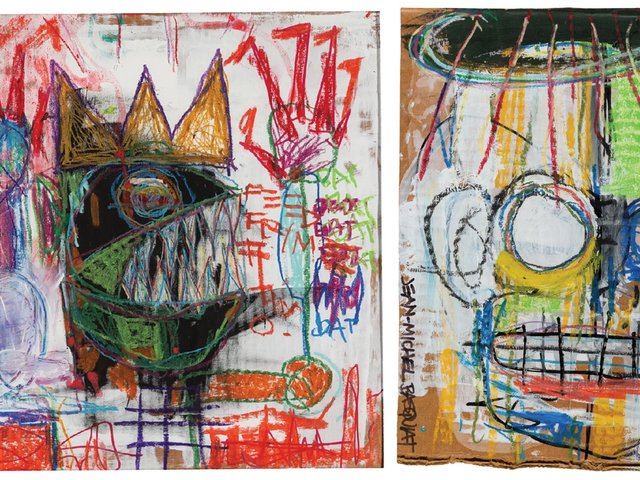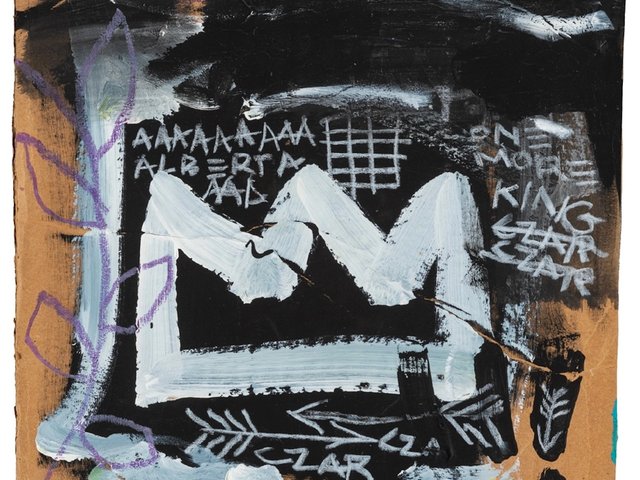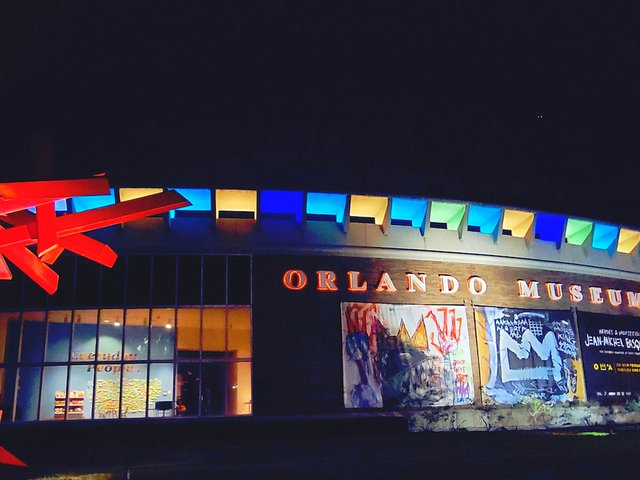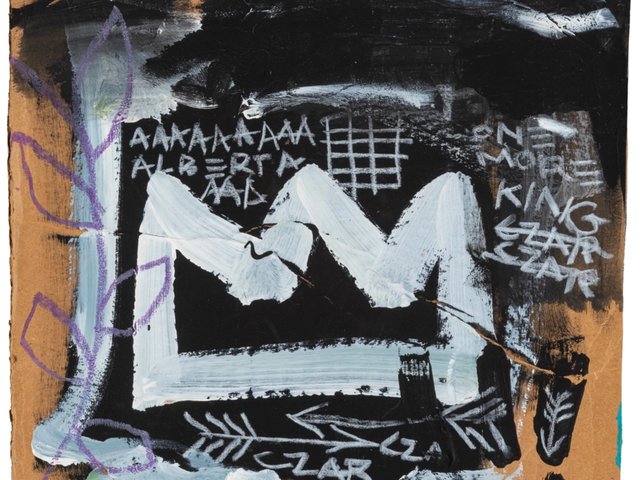Aaron De Groft, the art historian, curator and museum director whose career was derailed by his involvement in an exhibition of what turned out to be fake Jean-Michel Basquiat works at the Orlando Museum of Art (OMA), died on 18 January. According to an obituary, he died following a brief, unspecified illness, aged 59.
At the time of his death, De Groft was in a legal dispute with the OMA, where he was the director and chief executive for about a year and a half before his firing in late June 2022. Earlier that month the museum was raided by FBI agents who seized 25 objects that were featured in a exhibition of works purportedly by Basquiat. Experts had raised questions about their authenticity, and ultimately an auctioneer in Los Angeles admitted that he and an accomplice had made the fake works in 2012 with a plan to pass them off as authentic Basquiats. A few days after the raid, the OMA’s board fired De Groft.
Prior to the raid, De Groft had defended the works’ authenticity and reiterated the false provenance provided by their owners: that the works had been discovered in a storage locker that was previously rented to the screenwriter Thad Mumford, who purportedly had bought the works directly from Basquiat in 1982. “My reputation is at stake as well,” De Groft told The New York Times in February 2021, shortly after Heroes & Monsters: Jean-Michel Basquiat, The Thaddeus Mumford, Jr. Venice Collection opened at the OMA. “And I’ve absolutely no doubt these are Basquiats.”
He and the museum subsequently sued each other, with the OMA alleging fraud, conspiracy, breach of fiduciary duty and breach of contract, while De Groft accused his former workplace of wrongful termination and defamation. Florida’s “survival statute” allows for a family member to keep pursuing a lawsuit in the event of the plaintiff’s death. De Groft was not a party in another ongoing lawsuit stemming from the Basquiat forgery scandal, in which two insurance companies are seeking to block a $19.7m claim filed by the fake works’ owners.
A spokesperson for the OMA would not comment on the status of its legal disputes with De Groft at the time of his death, but tells The Art Newspaper: "We were saddened to hear about the passing of Aaron De Groft. Our thoughts are with his family at this time of loss." De Groft’s death was previously reported by the Orlando Sentinel and Artnews.
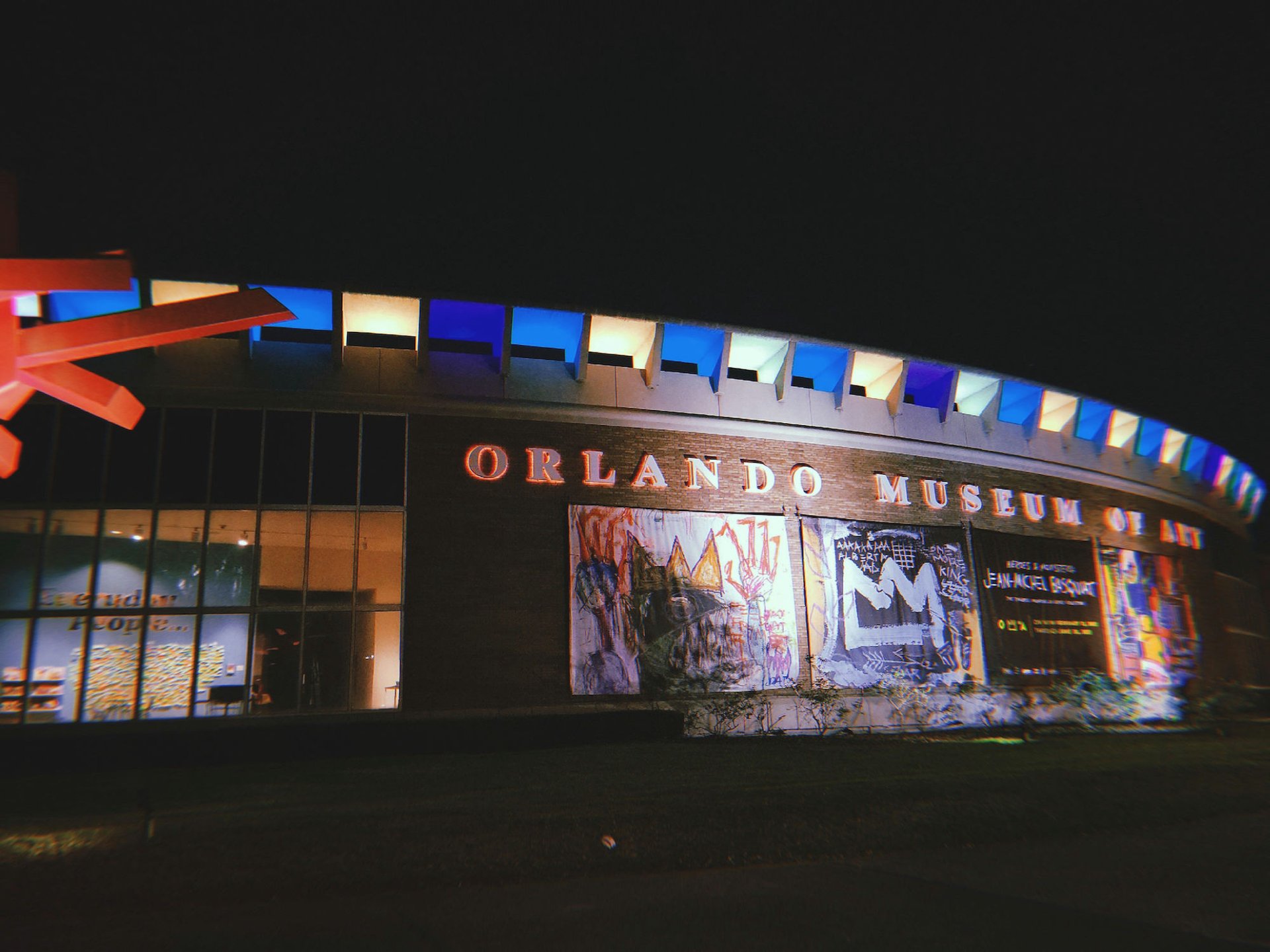
The exterior of the Orlando Museum of Art with banners promoting its Basquiat exhibition Photo by Athena Iluz/Flickr
Before he was hired to lead the OMA, De Groft had been the director of the Muscarelle Museum of Art at his undergraduate alma mater, the College of William and Mary in Williamsburg, Virginia, for 14 years. During his tenure he was credited with increasing the museum’s endowment nearly tenfold, from $3m to $32m. He had previously served for a decade as the deputy director Ringling Museum of Art in Sarasota, Florida, helping to lead the restoration of its historic Ca d’Zan mansion. His first museum role was at the Cummer Museum of Art and Gardens in Jacksonville, Florida, where he eventually became chief curator.
In addition to his undergraduate studies at the College of William and Mary—where he also played on the school’s varsity baseball team—De Groft earned a masters degree in art history from the University of South Carolina, followed by a doctorate in art history from Florida State University.
In a 2021 interview at the time of his appointment to lead the OMA, De Groft shared the story of how a sports injury and a chance encounter with a rising museum director set him on his career path.
“I was playing varsity baseball and was in a fraternity so, believe it or not, academics was not at the top of my list of interests. That was until the universe reached out, smacked me in the face, and I tore up my knee playing intramural volleyball,” De Groft told Orlando Family Magazine. “Once I realised I wasn’t going to be able to play baseball, I hobbled into the campus art museum, the Muscarelle Museum of Art, which was new at the time. There was a young, dynamic director there, Glenn Lowry, who today is the director of the Museum of Modern Art in New York City. I told him that I wanted to learn the museum business from the bottom to the top and he said, ‘OK, start by painting that wall.’”



